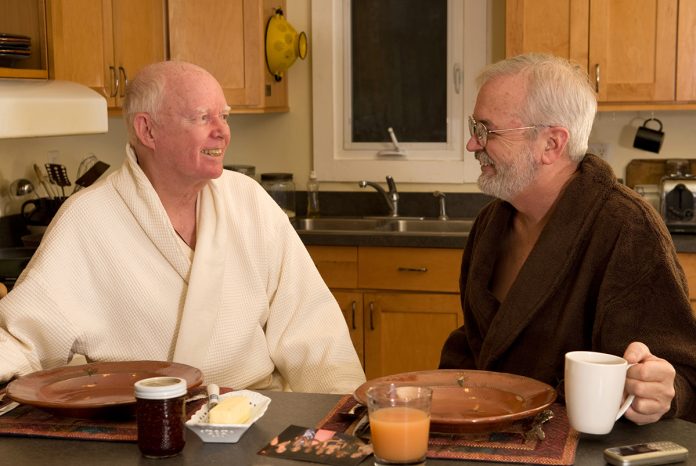As the City of Philadelphia continues to roll out initiatives and guidelines for thwarting the spread of coronavirus, it has become increasingly important for senior members of the community to be mindful of taking special precautions to prevent exposure of coronavirus.
As of Wednesday’s COVID-19 Coronavirus Response press conference at City Hall, Dr. Thomas Farley, Health Commissioner for the City of Philadelphia, reported that the total number of known cases of coronavirus rose to 34. Among those cases, 19 were between the ages of 20 and 39, 10 were between the ages of 40 and 59 and 5 were over the age of 60, according to Farley.
The Philadelphia Corporation for Aging (PCA) reports via the Center for Disease Control and Prevention, that older adults with serious chronic conditions, such as heart disease, lung disease and diabetes, are at increased risk of becoming seriously ill from coronavirus. Individuals in this group should make sure they have ample food and supplies, avoid crowds, follow everyday precautionary measures to distance oneself from others, avoid close contact with people who may be sick and of course, avoid non-essential travel, according to the PCA website.
“I mentioned that there are a subset of risk factors that are associated with a more severe disease progression,” Dr. Karam Mounzer said via a webinar produced by Philadelphia Health Training Alliance, a program of Philadelphia FIGHT. “Obviously older folks, but folks with cardiovascular disease, diabetes and hypertension, people with chronic lung disease, people who are immunocompromised. Lately, we noted that people who use non-steroidal anti-inflammatory drugs are at high risk of having worsening of the lung condition. Tylenol is approved and no cause for [concern].”
Steps seniors can take to reduce the risk of exposure to coronavirus according to Mounzer, include “social distancing, handwashing, and make it a habit every day to go through the contact areas of your home. If someone is visiting, make sure they wash their hands and leave their shoes at the door.”
Heshie Zinman, director of special projects for Philadelphia’s LGBT Elder Initiative, and Michele Mathes, communications director for the Center for Advocacy for the Rights and Interests of the Elderly (CARIE), both told PGN that the best practices for seniors are the same for the general population — regular hand-washing, social distancing, keeping one’s hands away from one’s face and staying away from those with compromised immune systems.
The LGBT Elder Initiative has canceled all programs through April 24, with plans to reschedule in the future. CARIE offices are currently closed through March 31, according to the organization’s website.
CARIE Program Manager Lori Walsh, as well as Mathes, are rolling out a fact sheet to guide older adults through coronavirus best practices and resources, including recommendations from the Philadelphia Corporation for Aging. They also include phone numbers that older adults can call if need be, such as the U.S. Department of Health and Human Services Disaster Distress Helpline at 1-800-985-5990, available 24/7.
While the Philadelphia Mayor’s Office has called for the temporary closure of all non-essential Philadelphia businesses, that has not prevented some local organizations from launching initiatives to provide food and care for LGBTQ seniors in the community.
The staff at William Way LGBT Community Center is teaming up with Philabundance, as well as other local food pantries, to deliver food to the residents of John C. Anderson Apartments (JCAA). Staff members will also be remotely checking on residents of the apartment building as well as seniors who participate in their programs, to ensure that they can access healthcare if need be, and that they have everyday supplies at their disposal.
“As a center that has great responsibility and accountability both to the seniors in John C. Anderson and the seniors who come to our Mornings Out [social] or 50+ Rap Group, we’re really committed to remaining regularly in communication to make sure people’s needs are met,” said Chris Bartlett, executive director of William Way.
“We may not be able to meet them ourselves, but we’re going to do our best to connect people with resources. Seniors are one of the groups who are at increased risk, so we are discouraging physical contact of any sort, but we are making sure that we have contact by phone and internet, and other ways of communicating without being in physical contact.”
Elizabeth Coffey-Williams, a resident at JCAA, said that she is self-isolating with her partner and trying to stay as connected as possible, in part by listening to concerts that musicians are streaming online, including those provided by her friend Susan Werner.
“Hearing my great friend go online and for 45 minutes sing songs to people she loves because she knows they’re alone, that’s extraordinary,” Coffey-Williams said. However, she also stressed the need to be smart about staying isolated to thwart the spread of the virus.
“I think for people who are at a lower risk, I think it’s incumbent upon them to be mindful of the fact that they can inadvertently have a negative impact on the entire scenario,” she said. “We are in this together; we’ve been through a lot; we have survived a lot. Taking care of each other is nothing new, it’s something that I would like to think we would be mindful of in our daily lives. Right now, it’s critical.”Regular coronavirus updates for the city of Philadelphia can be found at https://www.phila.gov/services/mental-physical-health/environmental-health-hazards/covid-19/.
